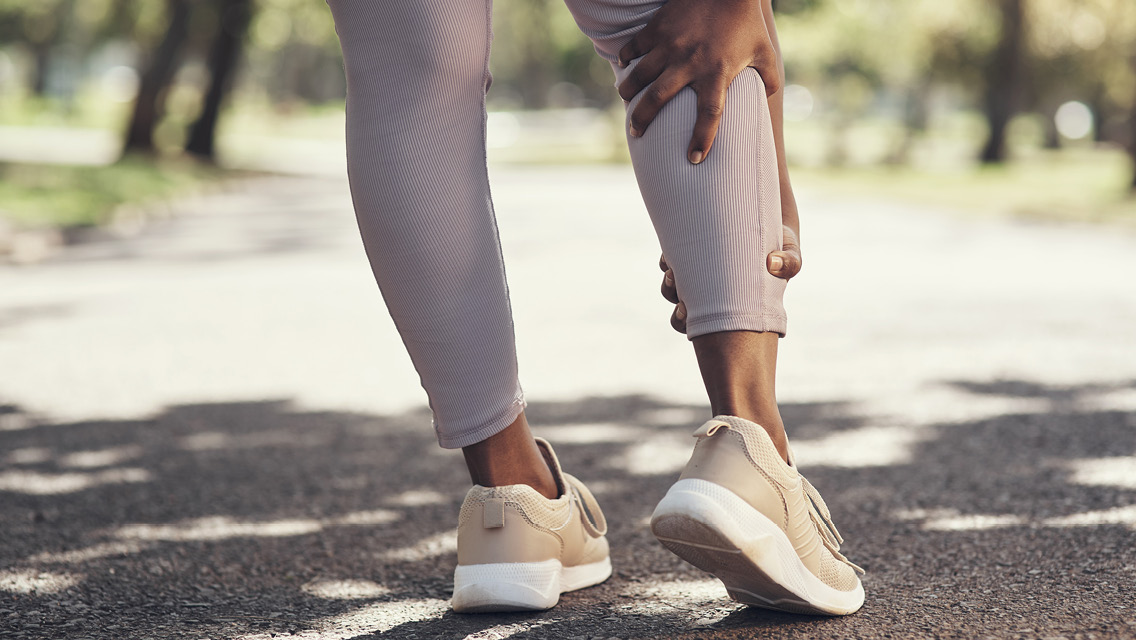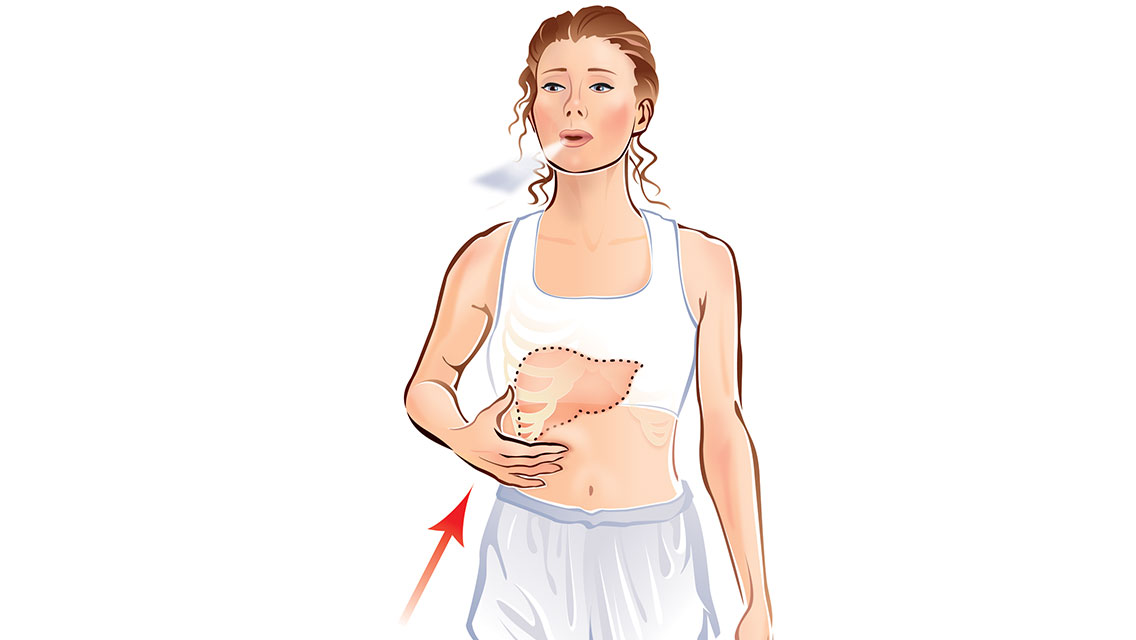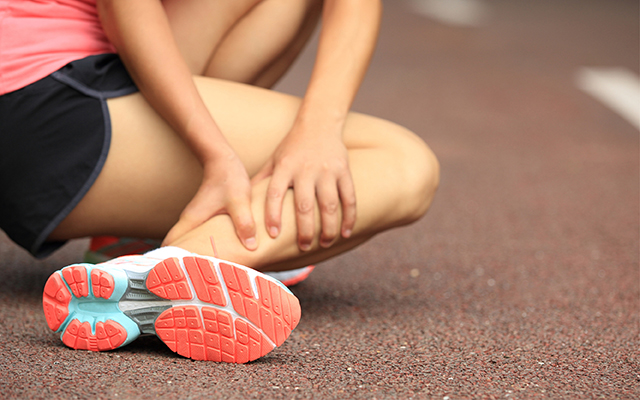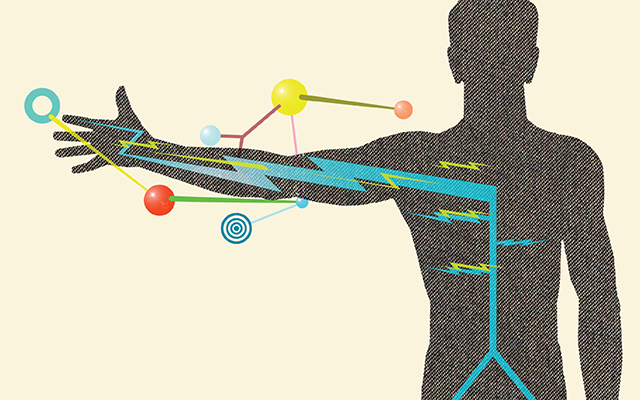Muscle cramps can be a serious pain. Whether you’re a recreational athlete or serious exerciser, a cramp can leave you limping off the field or out of the gym, grabbing your leg in agony.
A 2008 study published by the American College of Sports Medicine found that they have two distinct causes:
1. Overwork
Lifting a heavier weight or running longer or faster than you’re accustomed to can shut down the mechanism responsible for inhibiting muscle contraction. When that happens, the overworked muscle turns on — hard — and you’re down for the count. If a muscle cramp is due to overwork, the sensation is usually localized in one spot.
2. Dehydration
As sweat pours off you during your weekend bike ride or Ultimate Frisbee match, you lose more than moisture, explains Sue Falsone, PT, vice president of Performance Physical Therapy and Team Sports. “You also lose sodium, potassium, and other electrolytes responsible for regulating muscle contraction.” If the fluid in your body drops below a certain point, your muscles — some or many of them — may seize up.
You can avoid overwork-related cramps by ramping up the intensity and duration of your workouts gradually: A good rule of thumb is to increase the length or intensity of your workouts by no more than 10 percent per week. If you get a cramp, Falsone recommends gently stretching the cramping muscle, or trying to contract the muscle opposite the affected one (extend your leg if your hamstrings cramp, for example, or flex your foot back toward your shin if the cramp is in your calf).
To prevent dehydration-related cramps, always drink enough water to fend off thirst, especially when you’re exercising outdoors on hot days. “Thirst is an indication you’re already dehydrated,” says Falsone. Sipping is probably better than guzzling, however: You don’t want too much water sloshing around right before a soccer match.
If you become dehydrated enough to cause severe or bodywide cramping, stop what you’re doing immediately. “If allowed to go on, dehydration can eventually lead to heatstroke, which can be life-threatening,” says Falsone. Skip the stretching, go someplace cool, and get liquid in your system as soon as possible.





This Post Has 0 Comments